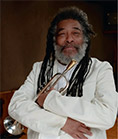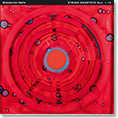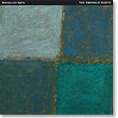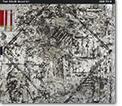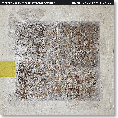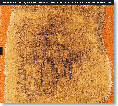THE MUSICIANS
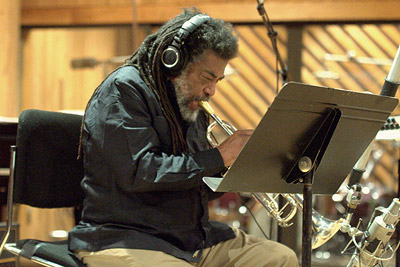
Wadada Leo Smith (b. 1941) was born in Leland, Mississippi. Smith´s early musical life began in the concert and marching bands of Lincoln High School in Leland, first on the mellophone, then moving on to the French horn and finally receiving his first trumpet at the age of 12. At the same age, he composed a work for three trumpets, his first composition.
Smith received his initial musical education from his stepfather, Alex "Little Bill" Wallace, who was one of the first Delta blues singers to begin playing the electric guitar. His family home in Leland was a meeting place for musicians where blues artists such as Elmore James, B.B. King and Little Minton were frequent guests, often performing in the family´s living room. Accordingly, Smith has said that: "The Blues was my first language and it never went away." As a trumpeter, Smith considers himself a descendant of Louis Armstrong, although Miles Davis, Booker Little, Clifford Brown and, a bit later, Don Cherry had the strongest impact on his own playing as a young musician.
Smith´s formal music studies began with Oneal Jones and Henderson Howard, who were his school bandmasters at Lincoln High, with the latter also being his first trumpet teacher. Smith later studied at the U.S. Army School of Music at Fort Leonard Wood in Missouri (1963), the Sherwood School of Music in Chicago, Illinois (1967-69), and the Wesleyan University in Middlewood, Connecticut (1975-76). His own music theory and notational system for improvisation in an ensemble context, which he calls "ankhrasmation," has been significant in his development as an artist and educator. Smith published his music philosophy already in the early 1970s in notes (8 pieces), source a new world music: creative music (Kiom Press, 1973).
After high school, Smith travelled for about a year with various blues, rhythm ´n´ blues and soul groups before entering the U.S. Army. In addition to attending the U.S. Army School of Music, Smith played for a total of about five years in six different army bands, touring not only in the Southern United States, but also in France and Italy. He also continued to broaden his musical horizons and was leading his own Ornette Coleman-inspired trio while still in the military. In 1967, Smith left the army and moved to Chicago to work with saxophonist Anthony Braxton and other members of the Association for the Advancement of Creative Musicians (AACM), the creative music collective that combined the music´s African roots with an improvisational approach.
Soon after arriving in Chicago, Smith met Anthony Braxton and violinist Leroy Jenkins for an impromptu practice session and, as a result, the three founded the Creative Construction Company, a collaborative group that became one of the key early ensembles of the AACM. Smith´s other collaborators in the pioneering work of the AACM included saxophonists Joseph Jarman, Roscoe Mitchell and Kalaparusha Maurice McIntyre, trumpeter Lester Bowie, trombonist George Lewis and pianist Muhal Richard Abrams.
Smith´s first recordings were also made in Chicago during this period under the leadership of Braxton (3 compositions of new jazz in 1968 and Silence in 1969; these albums included Smith´s first recorded compositions, "The Bell" and "Silence," respectively, which already used the rhythm-units concept, a framework for improvisation that Smith developed more fully in the 1970s), McIntyre (Humility In The Light Of The Creator in 1969) and Abrams (Young At Heart, Wise In Time in 1969).
Like many other AACM members, Smith supported himself by playing in the horn sections of various rhythm ‘n´ blues and soul bands, including Little Milton Campbell´s group. In 1969, Smith turned down Little Milton´s offer to become the straw-boss of his road band and moved to Paris along with Anthony Braxton and Leroy Jenkins as well as a few other key members of the AACM.
During his year in Paris, Smith took part in two important recordings by Braxton for the BYG Actuel label (Anthony Braxton in 1969 and This Time… in 1970) with a quartet that also included Jenkins and drummer Steve McCall. However, perhaps the most legendary line-up of this period was an expanded version of the Creative Construction Company (with Smith, Braxton, Jenkins, Muhal Richard Abrams, bassist Richard Davis and McCall), which was recorded live in May 1970 in connection with the AACM´s first concert in New York City (Creative Construction Company and Creative Construction Company 2). Smith worked with Braxton throughout the 1970s, including in Braxton´s quartet with Smith, bassist Dave Holland and drummer Phillip Wilson and other small groups as well as on Braxton´s classic big band recordings Creative Orchestra Music 1976 and Creative Orchestra (Koln) 1978. Since that time, Braxton and Smith have continued to play together from time to time.
After his year in Paris, Smith led his own group, Integral,with saxophonist Henry Threadgill, trombonist Lester Lashley and drummer Thurman Baker, for a few months in Chicago before settling in New Haven, Connecticut, during the summer of 1970 for a period of ten years. In New Haven, Smith concentrated on his own music as well as studying and teaching rather than touring and recording all over the world like many of his compatriots. In addition to leading his own groups and teaching at the University of New Haven, he studied ethnomusicology at the Wesleyan University, focusing on West African, Japanese, Indonesian and Native American music cultures. Soon after arriving in New Haven, Smith organized the Creative Improvisation Ensemble with saxophonist Marion Brown and they also recorded a duo album in December 1970 in New York City (Creative Improvisation Ensemble/Duets).
Smith´s first recording as a leader was a solo album (Creative Music-1 in 1971), which was also the first album released on Kabell, the independent record label he founded. After this first solo recording, Smith has continued to perform solo concerts and has recorded three additional solo albums (Solo Music/Ahkreanvention in 1979, Kulture Jazz in 1992 and Red Sulphur Sky in 2001).
Smith´s principal ensemble in New Haven, New Dalta Akhri, was comprised of his students and other young musicians based in the area and recorded a number of albums (Reflectativity in 1974, Song Of Humanity in 1976, The Mass Of The World in 1978, Divine Love in 1978, Spirit Catcher in 1979and Go In Numbers in 1980). At various times, its members included saxophonists Dwight Andrews, Oliver Lake and Henry Threadgill, pianist Anthony Davis, vibraphonist Bobby Naughton, guitarist Michael Gregory Jackson, bassist Wes Brown and drummer Pheeroan akLaff. Members of New Dalta Akhri were also part of the two large orchestras responsible for Smith´s first big band recordings, Leo Smith Creative Orchestra (Budding Of A Rose in 1979) and Leo Smith & The Creative Improviser Orchestra (The Sky Cries The Blues in 1981).
In the mid-1970s, Smith recorded as a member of the Jazz Composer´s Orchestra under the direction of trumpeter/trombonist Clifford Thornton (The Gardens Of Harlem in 1974) and Leroy Jenkins (For Players Only in 1975). He also recorded with Marion Brown (Geechee Recollections in 1973), saxophonist Frank Lowe (The Flam in 1975 and Doctor Too-much in 1977), Bobby Naughton (The Haunt in 1976), Michael Gregory Jackson (Clarity in 1976), Phillip Wilson (Fruits in 1978), Roscoe Mitchell (Sketches From Bamboo in 1979) and Anthony Davis (Hemispheres in 1983) and began his longstanding relationship with certain key figures in European improvised music such as members of the Company (Company 5, Company 6 and Company 7, all in 1977, with the collective personnel of guitarist Derek Bailey, trumpeters Smith and Steve Beresford, saxophonists Anthony Braxton, Steve Lacy, Evan Parker and Lol Coxhill, cellist Tristan Honsinger, bassist Maarten Altena and drummer Han Bennink) as well as bassist Peter Kowald and drummer Günter "Baby" Sommer (Touch The Earth in 1979 and If You Want The Kernels, You Have To Break The Shells in 1981; with koto player Tadao Sawai added, Human Rights in 1982). Many of these relationships have continued throughout Smith´s career and he has continued to record in London, including with Spring Heel Jack (The Sweetness Of The Water in 2004), the Abbey Road Quartet (Abbey Road Quartet in 2007) and the London Improvisers Orchestra (Lio Leo Leon in 2010).
In the early 1980s, Smith converted to Rastafarianism and recorded a series of albums that reflected this new spirituality, including Procession Of The Great Ancestry and Rastafari in 1983. The music that Smith performed around this time sometimes featured lyrics inspired by Rastafarianism and introduced elements of fusion jazz, reggae, funk and the blues into the music. Smith also became increasingly interested in presenting multimedia performances incorporating song, dance and drama.
In 1986, Smith began a series of trumpet/drums duos by recording a live concert with drummer Ed Blackwell (The Blue Mountain´s Sun Drummer,released on Smith´s Kabell label in 2010). This series also includes duo recordings with Adam Rudolph (Compassion in 2002), Günter "Baby" Sommer (Wisdom In Time in 2006), Jack DeJohnette (America in 2008) and Louis Moholo-Moholo (Ancestors, TUM CD 029, in 2011). In recent years, Smith has also made a number of other duo recordings, including those with vibraphonist Gustavo Aguilar (Dreaming With Serpents in 1999), trombonist Jeb Bishop (98 Duets in 1998), Anthony Braxton (Organic Resonance and Saturn, Conjunct The Grand Canyon In A Sweet Embrace, both in 2003), guitarist John Coxon (Brooklyn Duos in 2005), pianists Matthew Goodheart (Interludes Of Breath And Substance in 1998), Vijay Iyer (A Cosmic Rhythm With Each Stroke in 2015) and Angelica Sanchez (Twine Forest in 2013), laptop computer artist Ikue Mori (Masada in 2003), bassist John Lindberg (Celestial Weather, TUM CD 046, in 2012) and poet Harumi Makino Smith (Condor, Autumn Wind in 1997).
In 1993, Smith accepted a teaching position at the California Institute of the Arts (CalArts) and made Southern California his home. Alongside teaching, Smith continued to lead his own groups, in particular N´Da Kulture, and recorded a number of highly acclaimed albums as a leader (e.g., Tao-Njia in 1995, Golden Hearts Remembrance in 1997, Light Upon Light in 1998, Reflectativity in 2000 and Luminous Axis in 2002). In the mid-1990s, Smith converted to Islam, which further strengthened and made more apparent his longstanding interest in the musical cultures of the East, including those of Japan and India.
After his move to California, Smith began performing with improvising musicians based on the West Coast, such as saxophonists Mario Eneidi (The American Jungle Orchestra in 1996) and Vinny Golia (Prataksis in 1997), bassists Adam Lane (Hollywood Wedding in 1995) and Bertram Turetzky, members of the Rova Saxophone Quartet and guitarist Henry Kaiser (in Yo Miles!, a group co-led by Kaiser and Smith and dedicated to the music of Miles Davis´s electric period; Yo Miles!in 1998, Updriver in 2001 and Sky Garden in 2001), while continuing his collaborations with the likes of saxophonists Anthony Braxton, Douglas Ewart, Tony Malaby (TamarindoLive in 2010), Roscoe Mitchell (The Bad Guys in 2000) and John Zorn (Birthday Series 50/8 in 2003; and with Smith and George Lewis, Sonic Rivers in 2013), pianist Matthew Shipp (New Orbit in 2000), bassist John Lindberg (The Catbird Sings in 1999 and A Tree Frog Tonality in 2000) and the group Harriet Tubman (Araminta in 2016).
After retiring from CalArts in 2013, Smith has again settled in New Haven and has focused on composing and performing more frequently than ever before during his career. He has also reconnected with many of the New York based musicians he has worked with in the past, including two weeklong residences with multiple ensembles at the Stone. In April 2017, Smith organized the CREATE Festival in New Haven, which featured a total of eight ensembles over two days, ranging from a solo performance by Smith to the reunited New Dalta Akhri, the Mbira trio and the Golden Quintet as well as the RedKoral Quartet and the Chrystal Sextet performing Smith´s works for strings.
Smith currently leads five principal ensembles of his own: the Golden Quartet, an all-star group that originally included pianist Anthony Davis, bassist Malachi Favors Maghostut and drummer Jack DeJohnette and, in later editions, pianist Anthony Davis, Vijay Iyer or Angelica Sanchez, bassist John Lindberg and drummer Pheeroan akLaff or Ronald Shannon Jackson (Golden Quartet in 2000, The Year Of The Elephant in 2002, Tabligh in 2005 and, expanded into the Golden Quintet with drummer Don Moye, Spiritual Dimensions - CD1 in 2008, or with cellist Ashley Walters, America´s National Parks in 2016); the Great Lakes Quartet, another all-star group with Henry Threadgill, John Lindberg and Jack DeJohnette (The Great Lakes Suites, TUM CD 041-2, in 2012); Mbira, a trio with pipa player Min Xiao-Fen and Pheeroan akLaff (Dark Lady of the Sonnets, TUM CD 023, in 2007); Organic, a larger group with instrumentation consisting primarily of electric string instruments (Spiritual Dimensions - CD2 in 2009 and Heart´s Reflections in 2010); and the Silver Orchestra, a large orchestra that recorded its first album in 2004 (Lake Biwa).
Smith has been a prolific composer throughout his career with works ranging from solo piano pieces to compositions for multiple orchestras. Already while in the military in the 1960s, Smith arranged both popular and classical music for the various military bands in which he played and also increasingly began composing his own music both for jazz groups and for other ensembles. By the time Smith moved to Chicago in 1967, he had already composed several string quartettos and orchestral works. When working with other members of the AACM, and in the large ensembles led by Muhal Richard Abrams and others in particular, Smith began to combine his compositional skills and the improvisational spirit of the early AACM ensembles in search of his own approach to orchestral improvisation.
By 1970, Smith had developed the two basic systems of music that he has utilized in his compositions ever since: the system of rhythm-units and the notation system he termed "ahkreanvention," which literally means to create and invent musical ideas simultaneously, utilizing the fundamental laws of improvisation and composition. With the rhythm-unit concept, each single sound or rhythm, or a series of sounds or rhythms, is accepted as a complete piece of music. Each performer, in turn, is considered as a complete unit with each having his or her own center from which each performs independently of any other, whether performing in a small group or in an orchestral context. The independence of each sound-rhythm and the independence of each performer contributes to the liberation from time as a period of development and to its employment as an element of space instead.
Smith´s music for large ensembles has been performed throughout the world since 1969, developing from early works for more traditional big bands to compositions for multi-ensembles. Smith has received a number of awards and commissions as a composer and his compositions have been performed by numerous contemporary music ensembles, including the AACM Orchestra, the Kronos Quartet, the Da Capo Chamber Players, the New Century Players, the San Francisco Contemporary Music Players, the Contemporary Chamber Players (University of Chicago), the S.E.M. Ensemble, the Southwest Chamber Music, the Del Sol String Quartet, the New York New Music Ensemble, ne(x)tworks,theCalifornia E.A.R. Unitand the Oxford Improvisers Orchestra, among others.
In 2012, Smith released his most extensive recording to date, Ten Freedom Summers, a four-CD collection of a total of 19 works composed over a period of 34 years and inspired by the civil rights movement in the United States. Ten Freedom Summers was recorded by the Golden Quartet(Smith, Anthony Davis, John Lindberg and Pheeroan akLaff) and the Golden Quintet (add drummer Susie Ibarra) together with the Southwest Chamber Music and was short-listed for the Pulitzer Prize in Music.
In 2013, Smith released another important recording of larger works, Occupy The World (TUM CD 037-2), a two-CD collection comprised of six extended compositions performed by TUMO, a 22-member improvising orchestra.
In 2016, Smith released America´s National Parks, a two-CD recording by the Golden Quintet that features six extended compositions celebrating America´s national parks and its culture.
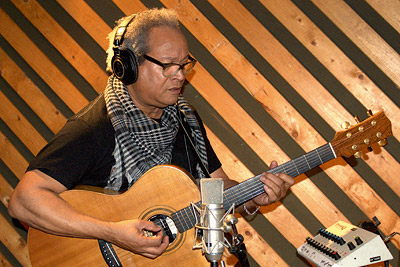
Michael Gregory Jackson (b. 1953) was born and raised in New Haven. By the age of 20, he was an integral part of the fertile New Haven scene for creative music, working with the likes of Anthony Davis, Gerry Hemingway, Oliver Lake and Wadada Leo Smith.
Upon his arrival in New York in the 1970s, Jackson was widely considered one of the most innovative guitarists to emerge during New York´s avant-garde loft scene. He participated in the legendary Wildflowers sessions in 1976 in three different groups.
Over the years, Jackson has worked and/or recorded with artists across the musical spectrum, including Walter Becker, Anthony Braxton, Will Calhoun, Nels Cline, Omar Hakim, Julius Hemphill, Nona Hendryx, Patti LaBelle, Oliver Lake, Marcus Miller, David Murray, Vernon Reid, Nile Rodgers, Carlos Santana, Henry Threadgill, Buster Williams and Steve Winwood, among many others.
In 2013, Jackson began performing and recoding with his European-based Clarity Quartet. He also leads his U.S.-based CLARITY TriO and various other groups.
Jackson has released a number of albums as a leader starting with Clarity in 1976 and followed by Karmonic Suite in 1978, Gifts in 1979, Heart And Center in 1979, Cowboys, Cartoons And Assorted Candy in 1982, Situation X in 1983, The Way We Used To Do in 1982, What To Where in 1987, Towards The Sun in 1991, High Up Where The Breezes Blow in 1995, Red in 2000, Liberty in 2013 and After Before in 2015.
With Wadada Leo Smith, Jackson has most recently worked in his Organic ensemble (Spiritual Dimensions - CD2in 2009 and Heart´s Relections in 2010).
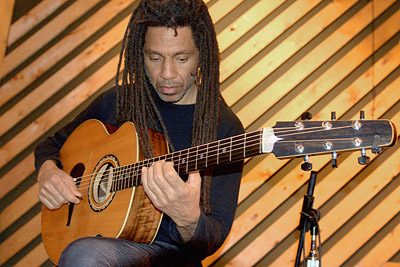
Brandon Ross (b. 1955) was born and raised in New Brunswick, New Jersey. As a son of trombonist Candy Ross, he was first introduced to the trombone at the age of four but bought his first guitar around the age of 11. The guitar gave him the freedom to combine singing with playing his newly-chosen instrument.
Ross has been a member of various ensembles of Marion Brown, Leroy Jenkins, Oliver Lake, Myra Melford, Ron Miles, Rob Reddy and Henry Threadgill. As a performing and recording artist, he has also collaborated with the likes of Muhal Richard Abrams, Don Byron, Bill Frisell, Kip Hanrahan, Graham Haynes, Jewel, Bill Laswell, Arto Lindsay, John Lurie, Lawrence D. "Butch" Morris, Meshell Ndegeocello, Marcus Rojas, Archie Shepp, Moreno Veloso, Tony Williams, Cassandra Wilson and Lizz Wright, among many others.
Ross co-leads the avant power trio, Harriet Tubman, with bassist Melvin Gibbs and drummer JT Lewis. In this group, Ross uses electronics and pan-tonality to sculpt a multidimensional interactive sonic language in a classic R&B/rock configuration of guitar, bass and drums (I Am A Man and Treasure Hunt For A Prototype in 1998, Ascension in 2000 and Araminta in 2016).
Ross currently leads his acoustic-based quartet, Brandon Ross & Blazing Beauty, in which he plays banjo as well as electric, acoustic and soprano guitars (Costume in 2004 and Puppet in 2006). Ross also performs with For Living Lovers, his acoustic duo with acoustic bass guitarist Stomu Takeishi (Revealing Essencein 2014).
Ross has worked with Wadada Leo Smith in his Organic ensemble (Spiritual Dimensions - CD2in 2009 and Heart´s Relections in 2010). Smith was also featured as a guest artist on Harriet Tubman‘s latest release, Araminta.
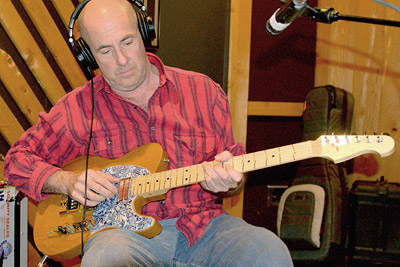
Henry Kaiser (b. 1952) is an American guitarist and composer, known as an idiosyncratic soloist, sideman, ethnomusicologist and film score composer. Recording and performing prolifically in many styles of music, Kaiser is a fixture on the San Francisco Bay Area music scene.
Artists with whom Kaiser has recorded and/or performed include Scott Amendola, Tom Constanten, Chris Cutler, Drumbo (John French), Diamanda Galas, Herbie Hancock, Toshinori Kondo, Steve Lacy, Bill Laswell, Phil Lesh, Lukas Ligeti, Thomas Mapfumo, Michael McClure, John Oswald, Evan Parker, Terry Riley, Ryuichi Sakamoto, Merl Saunders, Steve Smith, Wadada Leo Smith (in the Yo Miles! project), Michael Snow, John Stevens, Michael Stipe, Cecil Taylor, Andy West and John Zorn, among many others.
Kaiser has also often performed and/or recorded with fellow guitarists, including John Abercrombie, Bruce Anderson, Derek Bailey, Eugene Chadbourne, Nels Cline, D´Gary, Bill Frisell, Fred Frith, Jerry Garcia, Amos Garrett, Elliot Ingber, Mike Keneally, Steve Kimock, David Lindley, Harvey Mandel, Barry Melton, Jim O´Rourke, Glenn Phillips, Hans Reichel, Freddie Roulette, Sonny Sharrock, Martin Simpson, Jody Stecher, David Torn, Bob Weir and Davey Williams, among many others.
Kaiser has appeared on more than 250 albums starting with his solo album Lemon Fish Tweezer in 1975. In 1977, Kaiser co-founded Metalanguage Records and has released a number of albums on the label ranging from solo and duos to larger ensembles.
Since 1972, Kaiser has had a parallel career in the film and television industry working as a producer, director and soundtrack composer on numerous projects.
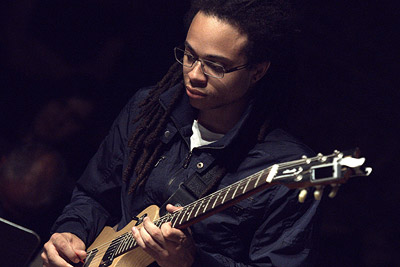
Lamar Smith (b. 1995) grew up around New Haven. He began playing the classical guitar at the age of six and his teachers included John Rodgers, Alex Vlassenkov and Jim Martin. While studying the classical guitar, he also taught himself how to play the electric guitar by learning to play some of his favorite songs. A large contribution to his playing and overall style, outside of the influence of his grandfather Wadada Leo Smith, came from the Educational Center of the Arts, an arts school located in New Haven.
Lamar Smith first performed with Wadada Leo Smith as a member of his Organic ensemble at the Firehouse 12 in New Haven in 2009 (Spiritual Dimensions - CD2in 2009 and Heart´s Relections in 2010). This was followed by performances with Organic in Europe and the United States in 2011 and 2012. He has also performed with Wadada Leo Smith´s Silver Orchestra.
During Lamar Smith´s four years at the Western Connecticut State University (2013-17), he participated in several open mic events on campus, performing both spoken word and music. In 2017, he performed with his guitar trio, the Lamar Smith Experiment, at the CREATE Festival in New Haven(The Lamar Smith Experiment in 2017). Currently, Lamar Smith is associated with Musical Intervention, a space for artists to come and create, in New Haven.
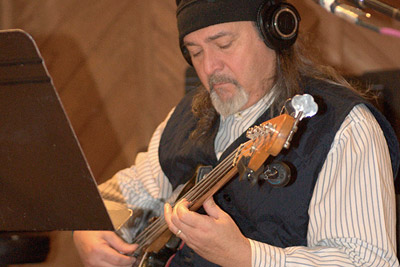
Bill Laswell (b. 1955) was born in Salem, Illinois, where he spent his early childhood until his family moved to Albion, Michigan, close to Detroit.
In the late 1970s, Laswell moved to New York City where he soon became an integral part of the so-called Downtown scene centered in the East Village. He was a key member in such ground-breaking groups as the Zu Band and Material, which combined rock influences with electronic experimentation and improvisation, as well as numerous other experimental groups that followed, including Massacre, the Golden Palominos, Curlew, Last Exit, Praxis, Painkiller, Arcana and Method of Defiance.
Through his work with Material, Laswell came into contact with pianist Herbie Hancock with whom he collaborated on the song "Rockit," which was included on Hancock´s album Future Shock. Around the same time, Laswell began to work as a producer with numerous popular artists and groups. As a producer, Laswell has also frequently pursued his interest in African and other world music.
In 1998, Laswell released Panthalassa, a remix of compositions by Miles Davis from his electric period in 1969-74, that received considerable critical and popular success. He has also remixed works by a number of other artists.
Laswell has released numerous albums as a solo artist either under his own name or a pseudonym starting with Baselines in 1983. He has released two solo bass albums (Invisible Design in 1999 and Invisible Design II in 2009) and a duo album with drummer Milford Graves (Space / Time・Redemption, TUM CD 040, in 2013).
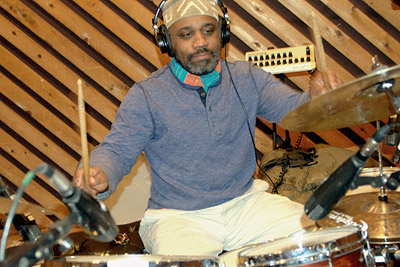
Pheeroan akLaff (b. 1955) grew up in a musical family in Detroit, Michigan. In l975, akLaff moved to New Haven where he began performing with Wadada Leo Smith and many of the other young musicians working with Smith. His first recordings were with Smith´s New Dalta Akhri and with Oliver Lake in 1976. These were followed by more recordings with both Lake and Smith as well as recordings with Michael Gregory Jackson, Anthony Davis, guitarist Allan Jaffe, bassist Mario Pavone and pianist Amina Claudine Myers.
After akLaff moved to New York City in 1978, he was often associated with improvised music, but also soon demonstrated his knowledge of other forms of African-American music from funk to reggae. He has also toured extensively in Africa, Asia and Europe and studied urban popular music, folk drums and dance in Abidjan, Cote D´Ivoire, and Lagos, Nigeria.
In the early 1980s, akLaff joined Oliver Lake´s reggae-influenced band Jump and Henry Threadgill´s highly acclaimed Sextett followed by Threadgill´s Make A Move ensemble and New Air. Since that time, akLaff has worked with a veritable Who´s Who of modern jazz and improvised music in addition to leading his own projects and teaching.
In 1988, akLaff started his cooperation with Japanese pianist Yosuke Yamashita that has so far resulted in about 20 recordings and has helped create a strong following for akLaff in Japan and in Asia more broadly.
akLaff has released four recordings under his own name (House Of Spirit: "Mirth" in 1979, Fits Like A Glove in 1983, Sonogram in 1989 and Global Mantras in 1997).
akLaff currently performs with a number of Wadada Leo Smith´s ensembles, including the Golden Quartet and Mbira (Dark Lady of the Sonnets, TUM CD 023, in 2007)
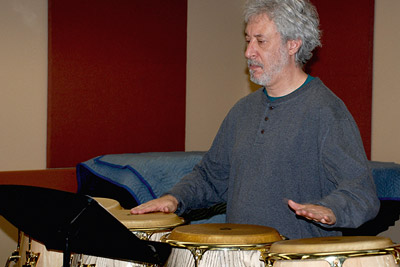
Adam Rudolph (b. 1955) grew up in the Hyde Park area of the Southside of Chicago. From an early age, he was exposed to the live music performances of the blues and improvising artists in the area. As a teenager, Rudolph started playing hand drums in local streets and parks and soon apprenticed with elders of African-American improvised music.
Rudolph performed regularly in Chicago with saxophonist Fred Anderson and in Detroit with the Contemporary Jazz Quintet. In 1973, Rudolph played on his first record date with Maulawi Nururdin and with the CJQ at the Ann Arbor Blues and Jazz festival.
Rudolph has performed with Muhal Richard Abrams, Don Cherry, Herbie Hancock, Jon Hassell, Massimo Laguardia, Bill Laswell, Sam Rivers, Pharaoh Sanders, L. Shankar, Omar Sosa and Foday Musa Suso, among many others. He toured extensively and recorded 15 albums with Yusef Lateef including duets and their large ensemble compositional collaborations.
Rudolph is known as one of the early innovators of what is now called "world music." He has lived and studied in several countries in Africa as well as in India in addition to performing across the globe. Rudolph has also taught and conducted hundreds of musicians worldwide utilizing his Go: Organic Orchestra concept.
Rudolph has released over 25 recordings under his own name, featuring his compositions and percussion work. Rudolph composes for his ensembles Adam Rudolph's Moving Pictures, the Hu Vibrational percussion group and Go: Organic Orchestra, an 18 to 54 piece ensemble for which he has developed an original music notation and conducting system.
With Wadada Leo Smith, Rudolph has previously released a duo album (Compassion in 2002).

